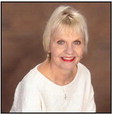OK, Boomer… what’s your plan?

‘Aging Matters’ By Carol Marak
In a recent Forbes article, Howard Gleckman says, “As 2020 dawns, the U.S. is about to reach a critical, historic tipping point in its need to care for frail older adults. And we are tragically unprepared.”
In 2025, the first phase of the wave — the 75-plus-million Baby Boomer generation will reach 80. And that’s the time people will become more frail and unable to do for themselves. They will face higher risks and have bigger needs for long-term care support and services.
In 2030, that’s when the early Boomers (millions more) will reach 80 plus. They will become more frail and have big needs for support and services.
And by the end of the new decade, millions of those early Boomers will reach 85, when their care needs increase even more.
In Gleckman’s Forbes article, he references a 2019 Urban Institute study, which confirms the hair-raising data: “Our results show that 70% of adults who survive to age 65 develop severe LTSS (long-term supports and services) needs before they die and 48% receive some paid care over their lifetime. Many older people with severe LTSS needs rely exclusively on family and unpaid caregivers, and most paid care episodes are relatively short. Only 24% of older adults receive more than 2 years of paid LTSS care, and only 15% spend more than 2 years in a nursing home. However, the lifetime risk of receiving paid care is not evenly distributed across the population.
Lengthy spells of severe LTSS needs and paid care are much more common among older adults with few financial resources than their wealthier counterparts.”
The United States Congress Joint Economic Committee calls “this wave,” and analyses, confirm that older Americans in the future are unlikely to have the level of support from caregivers that they enjoyed in the past.
The share of retiring adults who are living with a spouse or cohabiting with a partner has fallen from about 75 percent to 69 percent, reflecting declining marriage rates and higher divorce rates, which more than offset falling widowhood, rising cohabitation, and growing life expectancy. Retiring adults today are also less likely to have children who can take care of them. In 1994, two-thirds (68 percent) of retiring adults lived within ten miles of an adult child. That share fell to 55 percent in 2014. In large part, this decline reflects falling fertility.
The right axis of the figure indicates that the average number of children ever born to retiring adults fell from 3.1 in 1994 to 2.1 in 2014.
Being the eternal optimist, there is a way out for each of us and it doesn’t require the government or the taxpayers to pick up the tab. But it requires action. NOW.
After caring for my parents ten years ago, it occurred to me, “Who will do all that for me?”
Like many older Americans, close to 31 percent — live without nearby family caregivers or unpaid help. For me, I have no children at all.
Plus, I’m unmarried.
It’s me, myself, and I.
I needed a plan because I saw what the elderly years did to my parents. It wasn’t a pretty picture. And I knew from my family genetics, barring freak accidents, I will live to a very old age.
So, I started to research and created a plan to address the top concerns:
• Transportation — Whether it’s medical appointments, shopping, running errands or emergencies, you need a plan for how you are going to get where you need to go
• Daily Living Tasks — Bathing, grooming, housekeeping, and meal preparations are just some things that most people take for granted until they can’t do it themselves
• Mobility — As you get older, like it or not, you will eventually need assistance with mobility and transferring from one location to another
• Medication Reminders — Most older Americans take one or more daily medications, and as memory becomes more unreliable, you will need assistance with precription drugs reminders
• Financial — Many are planning for retirement but many are not, and even well-laid plans can go awry, so plan for needing at least some assistance with paying bills and the legal issues that arise as you age Carol Marak, aging advocate and editor at Seniorcare. com. She’s earned a Certificate in the Fundamentals of Gerontology from UC Davis, School of Gerontology.



Share